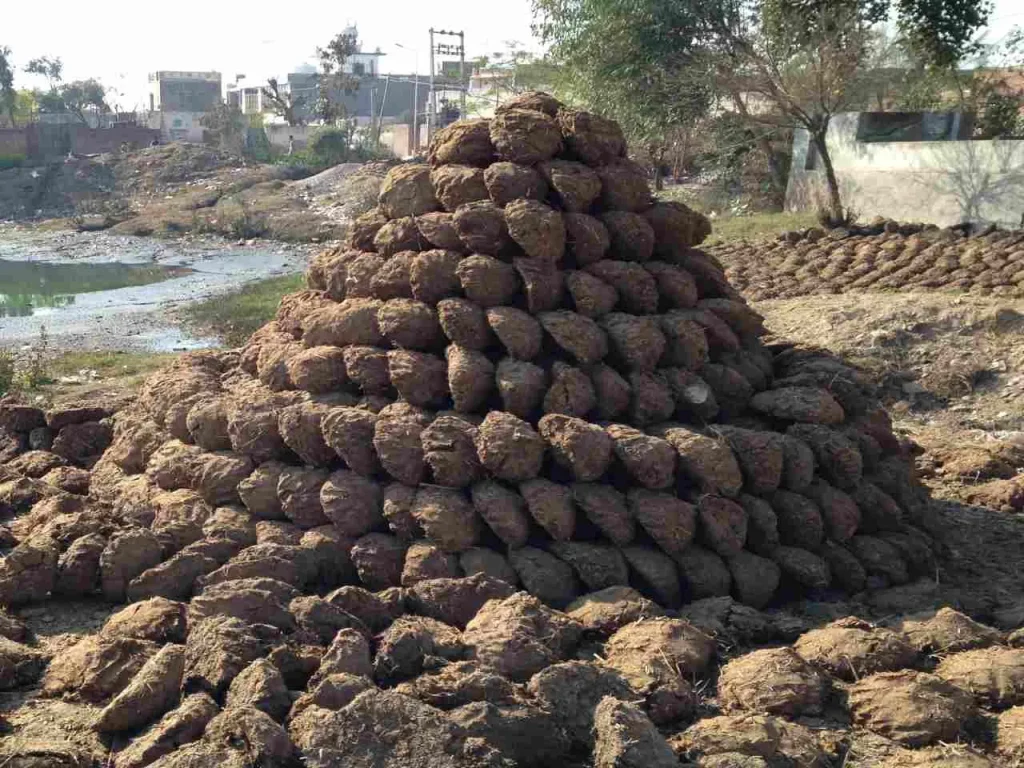Context:
The Union Minister for Jal Shakti interacted with Compressed Biogas (CBG) producers and key stakeholders to review and gather feedback on the GOBARdhan Initiative.
More on the News
- This review meeting highlights the Government’s commitment to converting organic waste into valuable resources like CBG and organic manure.
- They pointed out that the announcement in the Union Budget 2023-24 to establish 500 new waste-to-wealth plants was a major shot in the arm for GOBARdhan.
- The interaction aimed to strengthen collaboration and address challenges CBG producers face, reflecting the government’s support for innovative and sustainable waste management solutions.
Compressed Biogas (CBG)
- It is a renewable gaseous fuel produced through the anaerobic digestion of organic matter like agricultural residues, animal dung, food waste, and municipal solid waste.
Circular economy
- It is a model of production and consumption, which involves sharing, leasing, reusing, repairing, refurbishing and recycling existing materials and products as long as possible. In this way, the life cycle of products is extended.
Compressed natural gas (CNG)
- It is a fuel gas mainly composed of methane (CH4), compressed to less than 1% of the volume it occupies at standard atmospheric pressure.
About the GOBARdhan initiatives
- The Galvanizing Organic Bio-Agro Resources Dhan (GOBARdhan) initiative is a crucial program aimed at converting waste into wealth and promoting a circular economy.
- This initiative, spearheaded by the Department of Drinking Water and Sanitation (DDWS) under the Ministry of Jal Shakti.
- It employs a whole-of-government approach to establish a sustainable ecosystem for setting up Biogas, Compressed Biogas (CBG), and Bio-Compressed Natural Gas (Bio-CNG) plants.
Objectives
- Enhance Waste Management in Villages
- Transform Waste into Wealth.
- Produce Biogas and Organic Manure
- Promote Environmental Sanitation
- Create Rural Employment opportunities
Scope and Implementation
- It is an umbrella initiative that encompasses a variety of schemes, programs, and policies designed to transform organic waste such as cattle dung and agricultural residues into biogas, CBG, and Bio-CNG.
Key programs involved include:
- Waste to Energy Scheme
- SATAT (Sustainable Alternative Towards Affordable Transportation) scheme
- Swachh Bharat Mission-Grameen Phase II program
- Agri Infrastructure Fund (AIF)
- Animal Husbandry Infrastructure Development Fund (AHIDF)
- The initiative is implemented in collaboration with state governments and the private sector, including entrepreneurs and societies.
- Any plant or project producing CBG/biogas (with daily output exceeding 10 cubic meters) and bio-slurry as primary outputs is eligible to participate in GOBARdhan.
Climate Action and Economic Benefits
- GOBARdhan aims to contribute significantly to India’s climate action goals, particularly achieving net-zero emissions by 2070.
- It enhances energy security and affordability, fosters entrepreneurship, creates rural employment opportunities, and stimulates local economies.
- It aligns with the Government of India’s Mission LiFE.
Social and Health Impacts
- It particularly benefits rural communities and women, providing access to clean fuel, improved village hygiene, and better health outcomes by reducing the incidence of vector-borne and respiratory diseases.
GOBARdhan initiative Alignment with Sustainable Development Goals (SDGs)
- SDG 3 (Good Health and Wellbeing)
- SDG 6 (Clean Water & Sanitation)
- SDG 7 (Affordable & Clean Energy)
- SDG 13 (Climate Action)
Lifestyle For Environment (LiFE)
- At the 2021 UN Climate Change Conference (UNFCCC COP26), India announced Mission LiFE, to bring individual behaviors to the forefront of the global climate action narrative.
- LiFE envisions replacing the prevalent ‘use-and-dispose’ economy—governed by mindless and destructive consumption—with a circular economy, which would be defined by mindful and deliberate utilization.

